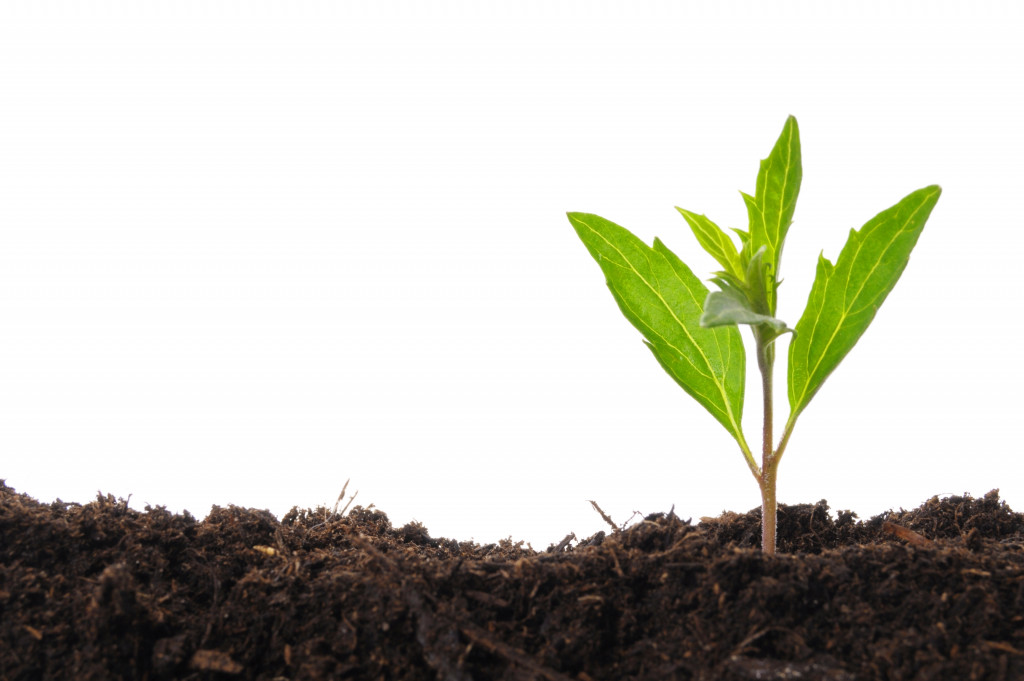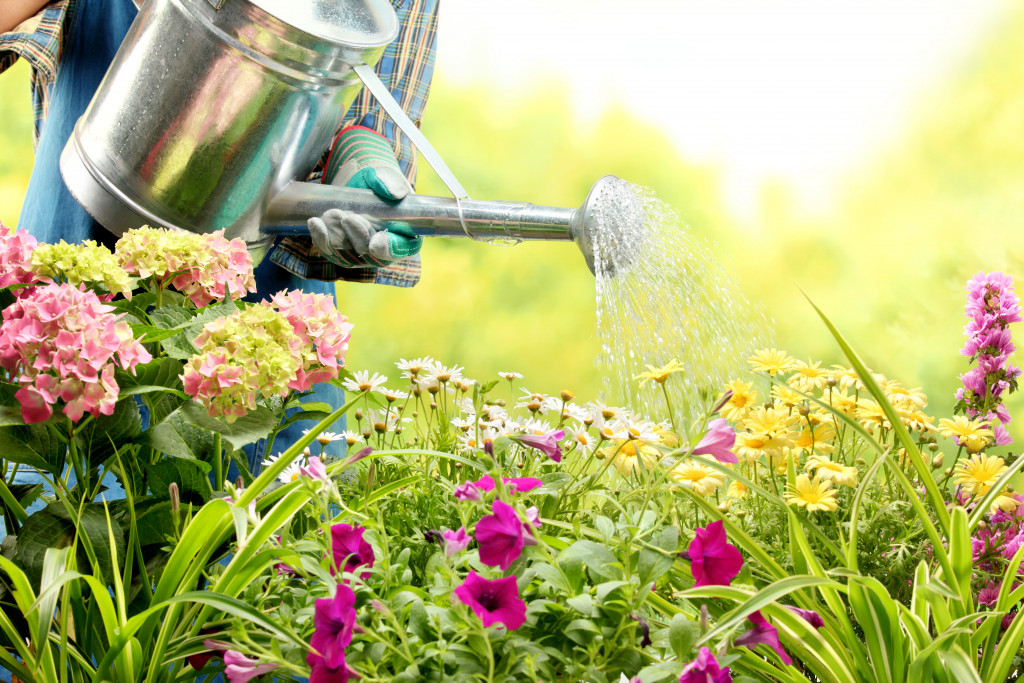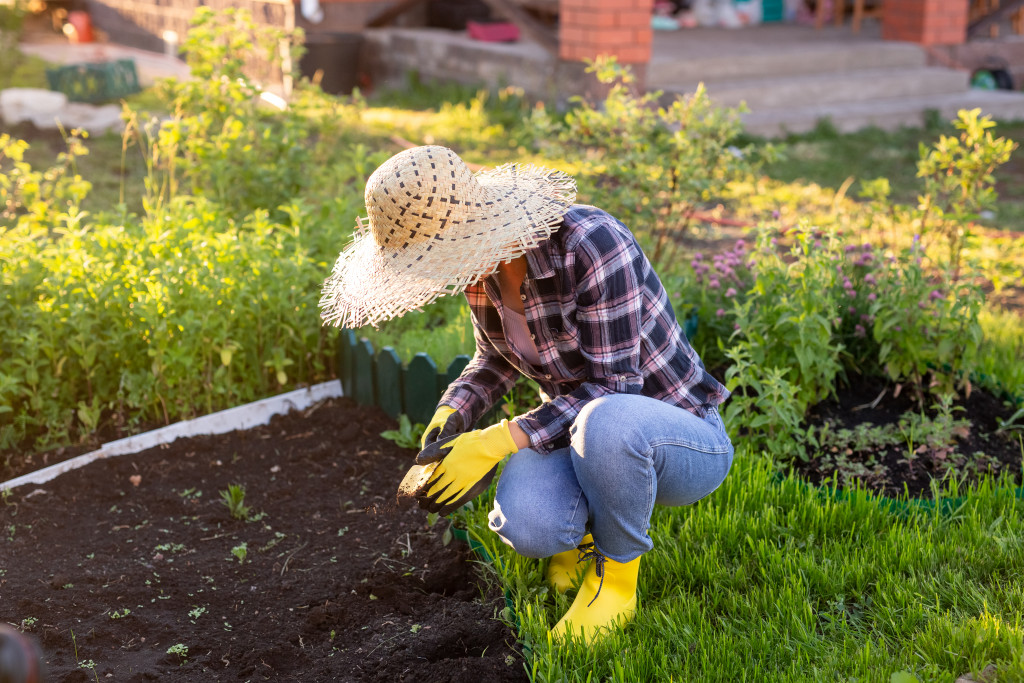- Understanding your local climate zone is crucial for choosing plants that will thrive and knowing when to plant them.
- Regular soil testing is essential to understand your garden’s nutrient content and pH level, allowing necessary adjustments for optimal plant growth.
- Watering wisely — knowing the specific needs of your plants and adjusting based on weather — ensures proper hydration without water wastage.
- Organic mulch in your garden can enhance soil health, regulate temperature, retain moisture, and suppress weed growth.
Embarking on a home gardening journey can be both exciting and rewarding. To ensure your green endeavor flourishes, it’s crucial to arm yourself with the best strategies. Delve into the top tips that will set you up for home gardening success, from choosing the right plants to understanding their specific care needs.
Understand your climate zone
Understanding your climate zone is fundamental to successful gardening. Climate zones dictate what kind of plants will thrive in your area and when to plant them. For instance, a tropical plant might not survive in a cold, temperate climate zone, while a hardy, cold-loving plant might struggle in a hot, dry zone.
Researching your local climate zone can provide insight into the average temperatures, rainfall, and seasonal changes you can expect. Equipped with this knowledge, you can select suitable plants and ensure they receive appropriate care for the conditions.
Recognizing your climate zone can also help you determine the best garden design for your space, including where to place certain plants for optimal sun exposure, and when to expect pests and diseases. Ultimately, understanding your climate zone empowers you with the knowledge to create a flourishing garden that’s compatible with your local environment.
Practice proper gardening techniques
Practicing proper gardening techniques is another essential step towards cultivating a thriving home garden. Here are some helpful tips:
Invest in a high-quality raised garden bed
Investing in a high-quality raised garden bed does wonders for your home gardening efforts. Raised beds add a dimension of control to your gardening experience because you can tailor the soil composition and drainage to meet the specific requirements of your plants.
Additionally, they help reduce the strain on your back and knees by raising the planting surface to a more comfortable height, enhancing accessibility and making gardening more enjoyable. Raised garden beds also offer an effective solution for growing plants in poor or compacted soil areas.
They prevent soil compaction, promote good water drainage, and allow roots to breathe, ensuring healthier and more productive plants. When shopping for raised garden beds, prioritize durable materials like cedar or metal to withstand the elements. In short, a quality raised garden bed is a worthy investment that can significantly improve your home gardening success.
Test your soil

Testing your garden’s soil is an essential step that shouldn’t be overlooked. Soil testing details soil nutrient content, pH level, and mineral composition. This information is paramount to help you understand the present conditions of your garden’s soil and what amendments or adjustments might be necessary for optimal plant growth.
A soil test can reveal nutrient deficiencies like nitrogen, phosphorus, and potassium, vital for plant health. It also explains the soil structure, which affects water and nutrient uptake. You can either purchase a soil testing kit to do it yourself or send a sample to a lab for a more comprehensive analysis.
Remember, balanced and healthy soil lays the foundation for a successful garden. Regular soil testing, therefore, should be part of your gardening routine to ensure your plants have the best possible growing environment.
Water wisely

Watering wisely is integral to the health and well-being of your plants. Proper watering is crucial for plant health. Overwatering can result in root rot and diseases, while under-watering can cause wilting and drying out. To ensure optimal growth, it is essential to research and understand the specific water requirements of your plants, as each variety may have different moisture needs.
Typically, the best time to water your garden is in the early morning or late evening when temperatures are cooler, minimizing water evaporation. Using a soaker hose or drip irrigation system can be more efficient as they deliver water slowly to the base of the plants, reducing water waste and preventing water from splashing onto the foliage, which can lead to fungal diseases.
Also, remember to adjust your watering schedule based on the weather. Your plants may need more water during hot, dry periods and less during cool, rainy spells. Watering wisely ensures your plants get the hydration they need to thrive without wasting water.
Practice crop rotation
Crop rotation is a tried-and-true gardening technique that greatly enhances your home garden’s productivity and health. This method involves changing the location of specific crop types in your garden each planting season. Crop rotation helps prevent the buildup of pests and diseases specific to certain crops, reduces the depletion of vital nutrients in the soil, and fosters soil biodiversity.
For example, if you plant tomatoes (a heavy feeder) in one spot this year, consider planting beans (which enrich the soil with nitrogen) next year. By doing this, you’re limiting pest infestation and rejuvenating the soil.
A well-planned crop rotation system can lead to healthier plants, a more bountiful harvest, and more sustainable gardening practices. Every beginner or experienced gardener should incorporate crop rotation into their gardening strategy to ensure a thriving and sustainable garden.
Use organic mulch
Using organic mulch in your garden can significantly enhance its health and productivity. Mulch is a layer of material applied to the soil’s surface around plants. Organic mulch, made from straw, grass clippings, leaves, or wood chips, offers numerous benefits.
First and foremost, it plays a crucial role in regulating soil temperature, ensuring that plant roots stay cool during the summer and warm during the winter. Secondly, it retains soil moisture, reducing the need for frequent watering. It also suppresses weed growth, preventing competition for nutrients.
Over time, organic mulch decomposes, enriching the soil with essential nutrients and improving its structure. This leads to healthier, more robust plant growth. Lastly, mulch can enhance your garden’s aesthetics, providing a neat, finished look. Embracing organic mulch is a fantastic, natural way to boost your garden’s health, conserve water, and reduce maintenance time.
In conclusion, nurturing a vibrant home garden is a fulfilling endeavor that requires understanding your climate zone, implementing proper gardening techniques, and maintaining steadfast commitment. Now it’s your turn! Embrace these tips, roll up your sleeves, and begin gardening. Remember, every garden starts with a single seed. Begin yours today.

